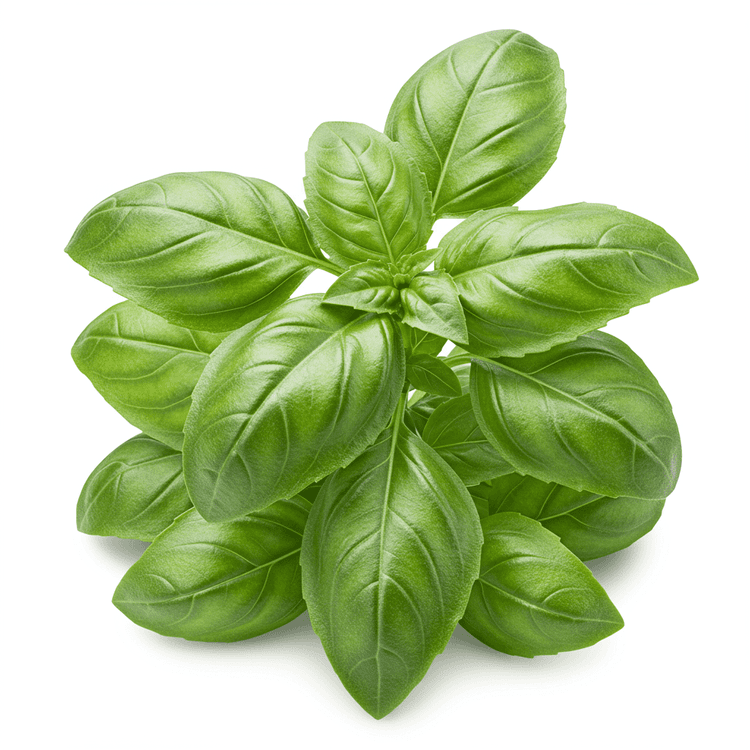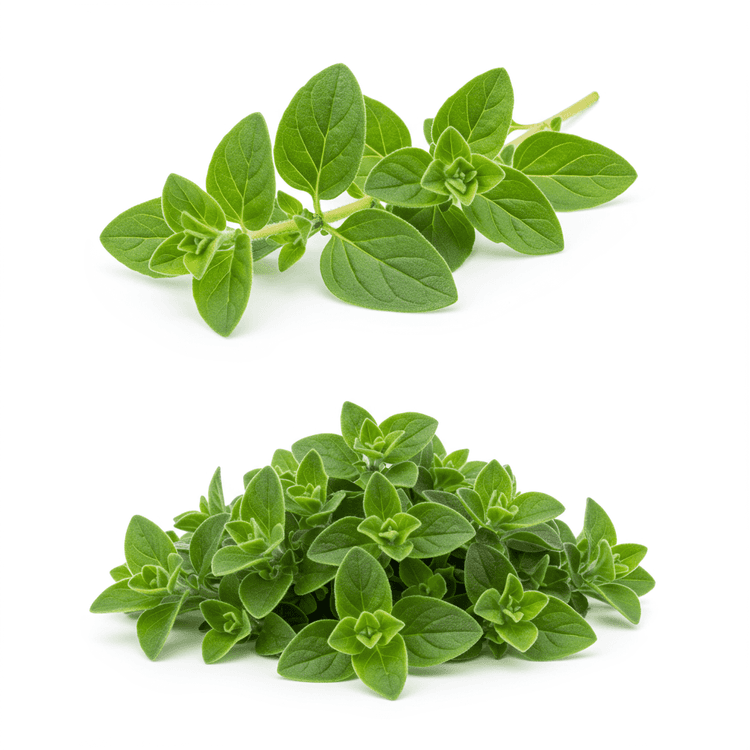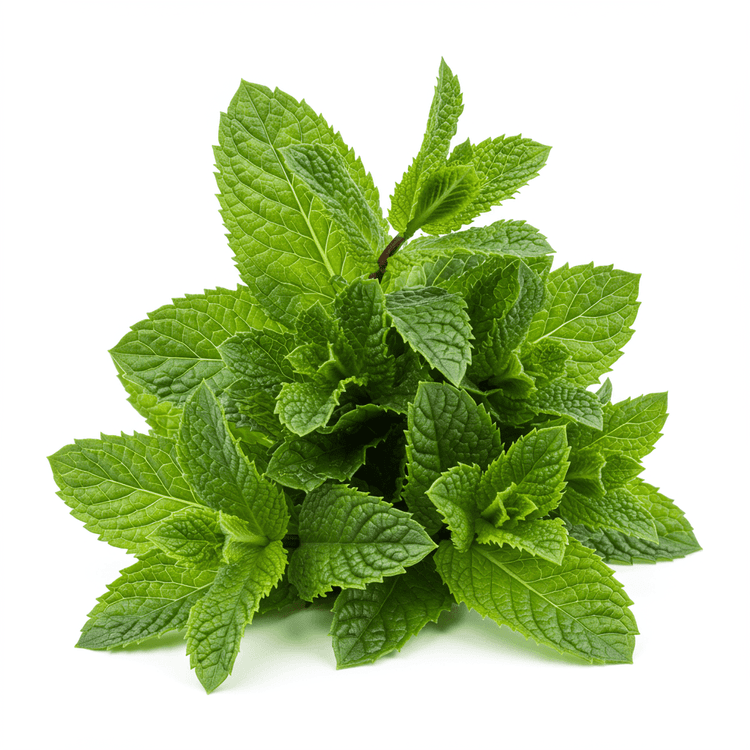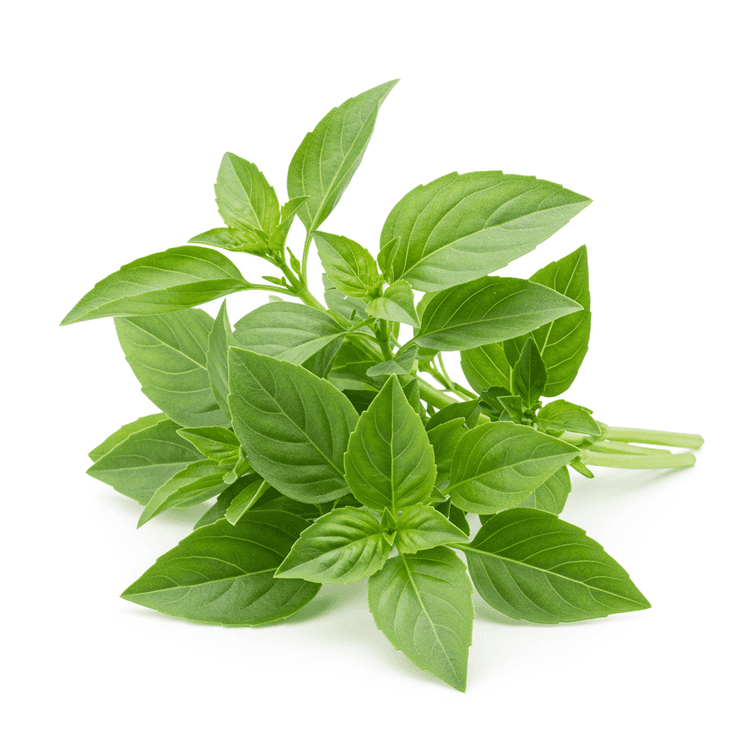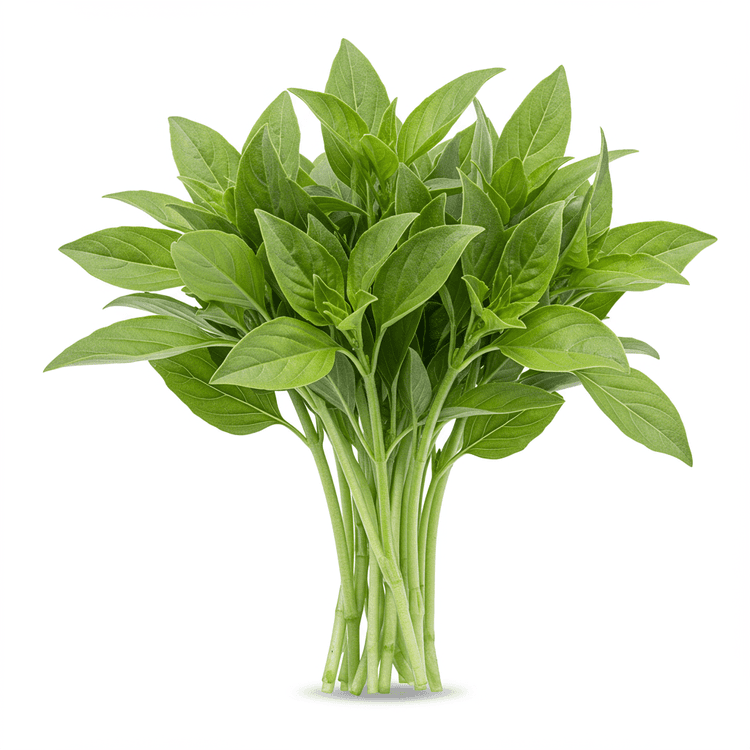
Asian Basil
Asian basil, also known as Thai basil, is a fragrant herb featuring vibrant green leaves and distinctive purple stems. Its flavor profile is a captivating blend of anise, licorice, and a hint of spice, offering a bolder, more assertive taste compared to sweet basil. The leaves have a slightly coarse texture. Find fresh Asian basil at Asian markets or well-stocked grocery stores for an authentic culinary experience.
Common Uses
- Asian basil is commonly used in Thai cuisine to prepare flavorful curries, adding an aromatic and slightly spicy component to dishes like green curry and red curry.
- It is often added fresh to Vietnamese pho and other noodle soups, enhancing the broth with its unique anise-like flavor.
- Stir-fries benefit greatly from the addition of Asian basil, lending a fragrant and savory note to vegetable, tofu, and meat dishes.
- Asian basil leaves can be used to create a delicious and aromatic pesto. This pesto offers a distinct alternative to traditional basil pesto, perfect for pasta or sandwiches.
- It can also be used to garnish salads, adding an eye-catching fresh and spicy element to salads and appetizers.
Nutrition (per serving)
Nutrition (per serving)
Calories
22.0kcal (1.1%)
Protein
2.5g (4.92%)
Carbs
2.6g (0.96%)
Sugars
0.3g (0.6%)
Healthy Fat
0.5g
Unhealthy Fat
0.0g
% Daily Value based on a 2000 calorie diet
Nutrition (per serving)
Calories
22.0kcal (1.1%)
Protein
2.5g (4.92%)
Carbs
2.6g (0.96%)
Sugars
0.3g (0.6%)
Healthy Fat
0.5g
Unhealthy Fat
0.0g
% Daily Value based on a 2000 calorie diet
Health Benefits
- Rich in Vitamin A, supporting eye health and immune function.
- Good source of antioxidants, helping to combat free radicals and reduce oxidative stress.
- May possess anti-inflammatory properties, potentially alleviating symptoms of inflammatory conditions.
- Contains essential oils that may aid digestion and reduce bloating.
- Offers a source of Vitamin K, crucial for blood clotting and bone health.
- May provide trace minerals like iron and calcium, contributing to overall wellness.
Substitutes
Chefadora AI is here.
Experience smarter, stress-free cooking.
Storage Tips
Asian basil is best stored in the refrigerator to maintain its freshness. Place the stems in a glass of water, like a bouquet of flowers, and cover the leaves loosely with a plastic bag. This method helps prevent wilting. Alternatively, you can wrap the basil leaves in a slightly damp paper towel and store them in a plastic bag in the crisper drawer. Avoid washing the basil before storing it, as excess moisture can cause it to spoil faster. Fresh basil is best used within a few days for optimal flavor.
Marnirni-apinthi Building, Lot Fourteen,
North Terrace, Adelaide, South Australia, 5000
Australia
